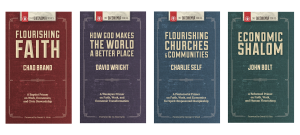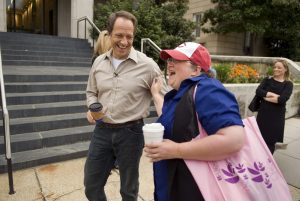


Last week, Pope Benedict XVI addressed the annual conference of the UN Food and Agriculture Organization, and expressed particular concern over rising food prices and the instability of the global food market. In his 2009 encyclical Caritas in Veritate, the pope issued this challenge: “The problem of food insecurity needs to be addressed within a long-term perspective, eliminating the structural causes that give rise to it and promoting the agricultural development of poorer countries.”
Acton’s Director of Research Samuel Gregg has done much to illuminate those structural causes and their effects on the agricultural capacity of developing countries. In an interview with EWTN two months ago, he talked about two of the most important drivers of high food prices: farm subsidies and energy costs.
“All the subsidies that go into agriculture—through things like import taxes and tariffs, as well as direct subsidies—have the paradoxical effect of reducing the incentive for investment in agriculture in developing countries,” said Dr. Gregg. African farmers pete with their counterparts in the first world who are able to sell their produce at artificially low prices, and so developing countries end up turning away from food production. In the long run, this decrease in supply causes prices to rise.
Energy prices also affect the cost of food: the more a farmer pays for gasoline, the more he has to recoup from the sale of his crops. Again, market imbalances are causing prices to rise—OPEC, the cartel that controls a substantial amount of the world’s crude oil, determines its supply, and so “there’s a disparity between supply and demand,” Dr. Gregg explained. “OPEC and other oil-producing countries introduce a whole range of price distortions into the energy sector, resulting in higher prices”
U.S. energy policy is also to blame: from drilling moratoriums to ethanol subsidies, the federal government has effectively introduced inefficiency to energy markets.
Developing countries must be allowed to produce food without being undercut by Western protectionism and too-costly energy. When free markets are hindered, the poor suffer most.









